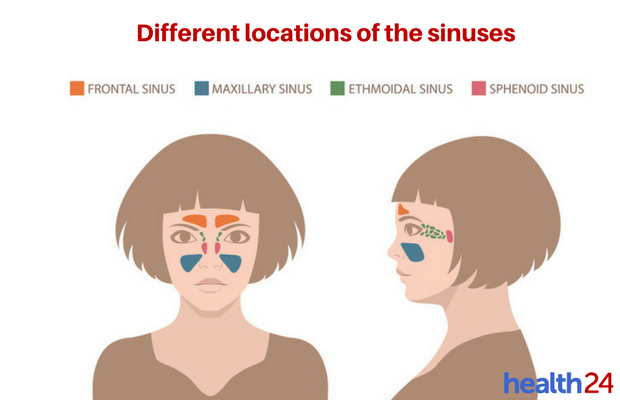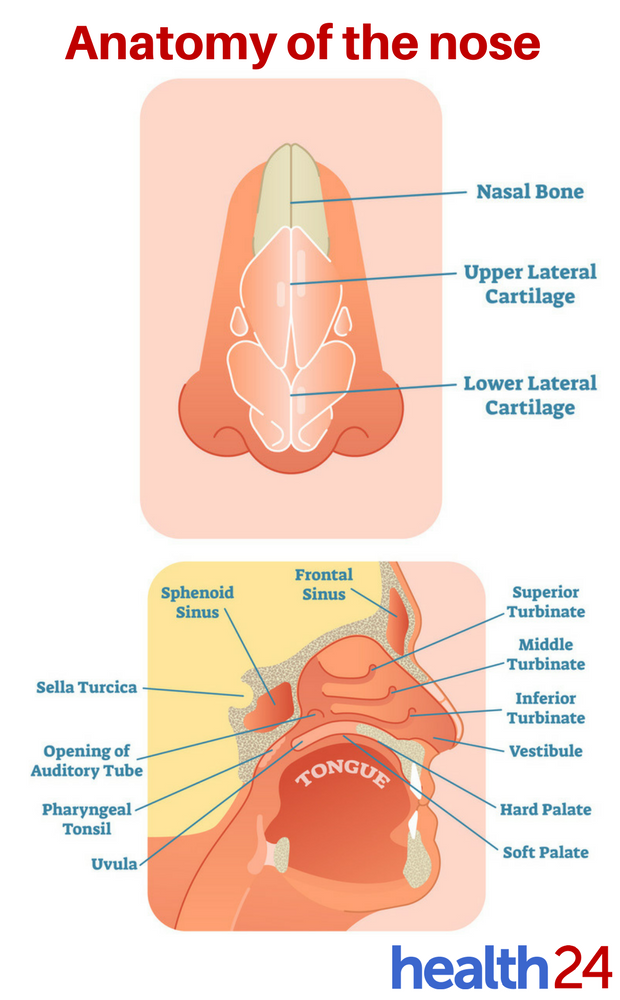Ever felt your cold would never go away?
It could actually be sinusitis.
Do you know what causes this unpleasant condition?
What are the sinuses?
There are between 14 and 16 air-filled sinus cavities in the skull. These are located on either side of the nose, behind and between the eyes, in the forehead and deeper towards the back of the skull, and are sub-categorised in four areas (see diagram below).
They make our facial bones lighter, improve voice resonance and absorb some of the impact if you receive a hard blow to the head.
Regardless of where they're situated, the sinus cavities all serve the same purpose – to humidify the air we breathe in, with the mucous layer moisturising the nose.

How does sinusitis occur?
Sinusitis occurs when the tissues lining these cavities become inflamed. The more inflamed they get, the more mucus is produced. Normally, a small amount of mucus in the cavities acts as a filter for bacteria and germs to keep them from entering the deeper respiratory tract.
But when your nasal cavities become irritated mucus production becomes excessive, leading to congestion.
It’s not only the mucus that causes that stuffy, congested feeling. When the nasal passages are inflamed, the blood vessels also swell.
And if any excess mucus runs down the back of your throat, it can lead to additional symptoms such as coughing (especially at night), a sore throat, or even nausea and digestive problems like diarrhoea.
The diagram below shows the anatomy of the nose and how the nose and throat are connected.
What causes sinusitis?
Sinusitis can be triggered by allergic reactions to environmental factors, such as pollen or pet dander, but it can also occur as the result of a cold or flu.
Sinuses can become physically obstructed by tumours or growths. Nasal polyps which can grow from the mucous surfaces in the nose, probably caused by nasal inflammation, can block the nasal cavities.
Occasionally immune problems cause chronic sinus infections. If you have persistent sinus infections, have your immune system evaluated by an allergist/immunologist, especially before you have surgery. You may need allergy tests and tests to ensure you can form antibodies to common bacteria in a normal way. In rare cases, recurring sinusitis could point to an impaired immune system as the result of a condition such as Aids.
How to relieve congestion
There are several ways to treat the symptoms of sinusitis at home, whether it’s over-the-counter or a home remedy:
- Drink plenty of clear fluids, such as water or herbal tea, to thin the mucus.
- Take aspirin, acetaminophen (paracetamol) or ibuprofen for headaches.
- Elevate your head at night.
- Talk to your pharmacist about over-the-counter mucolytics (a mucus-thinning agent) or decongestants to reduce congestion.
- A saline (salt water and bicarbonate of soda) irrigation helps wash mucus and bacteria out of the nasal passages.
- Consult your pharmacist about antihistamines if allergies are the predominant cause of your sinusitis.
Image credit: iStock




 Publications
Publications
 Partners
Partners













